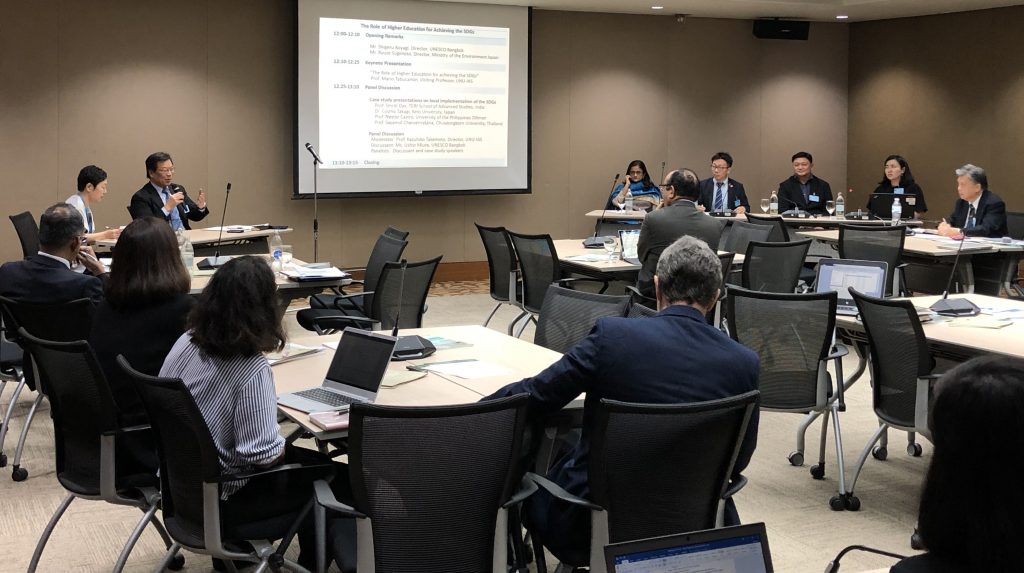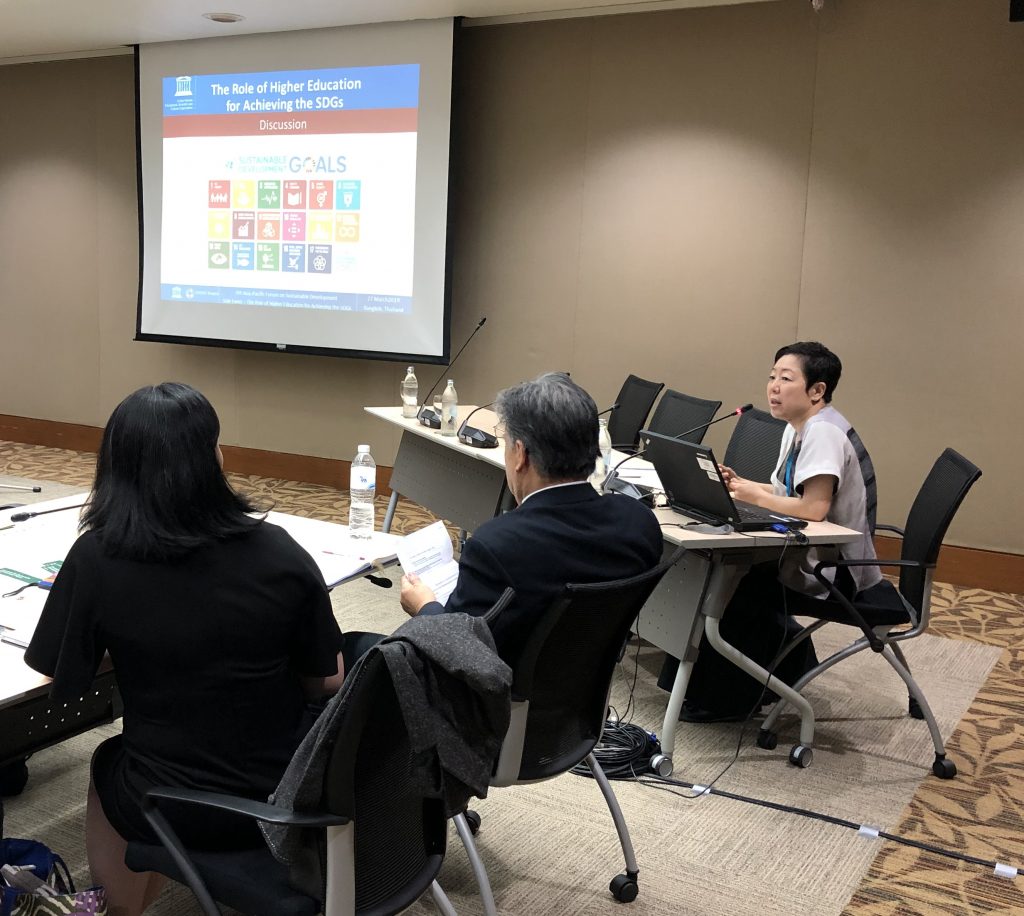 On 27 March, 2019, UNU-IAS, jointly with UNESCO Bangkok and the Ministry of the Environment Japan (MOEJ), organised a side event at the 6th Asia-Pacific Forum on Sustainable Development 2019 (APFSD 2019) in Bangkok, Thailand.
On 27 March, 2019, UNU-IAS, jointly with UNESCO Bangkok and the Ministry of the Environment Japan (MOEJ), organised a side event at the 6th Asia-Pacific Forum on Sustainable Development 2019 (APFSD 2019) in Bangkok, Thailand.
The topic of the event focused on the role of higher education for achieving the SDGs and aimed to share the findings from the ProSPER.Net joint project ‘Development of a Framework for the Local Implementation of the SDGs’.
The event began with opening remarks from Shigeru Aoyagi, Director of UNESCO Bangkok, and Ryuzo Sugimoto, Director, International Cooperation and Sustainable Infrastructure Office, MOEJ.
In his keynote speech, Mario Tabucanon, Senior Visiting Professor at UNU-IAS, emphasised the importance of ESD and highlighted that higher education can contribute towards understanding the interlinkages of the SDGs.
 In a panel discussion moderated by UNU-IAS Director Kazuhiko Takemoto, case studies on local implementation of the SDGs were presented by four ProSPER.Net members.
In a panel discussion moderated by UNU-IAS Director Kazuhiko Takemoto, case studies on local implementation of the SDGs were presented by four ProSPER.Net members.
Smriti Das, TERI School of Advanced Studies, India, reported findings related to health, water, sanitation and solid waste management in SDG implementation in Delhi, India. Based on a case study in Toyooka, Hyogo, Japan, Cosmo Takagi, Keio University, Japan, stressed that participatory approaches would foster ownership within the local people in terms of achieving the SDGs. Nestor Castro, University of the Philippines Diliman, Philippines, pointed out the challenges faced in the case study on Quezon City, Philippines, including the change of local government officials. Finally, Sayamol Charoenratana, Chulalongkorn University, Thailand, mentioned four important elements in localising the SDGs: namely awareness-raising, advocacy, implementation, and monitoring, in the case study on Muang District, Nan Province, Thailand.
As the discussant, Ushio Miura, UNESCO Bangkok, commented that the four case studies presented examples of collaborative learning processes for the SDGs and that such processes can facilitate shared understanding in the community. In the discussion with the audience, the importance of putting the SDGs into local languages and institutionalising the initiatives was underscored. The discussion and recommendation will be reflected in the next phase of the joint project.
A report of the side event can be accessed here.
